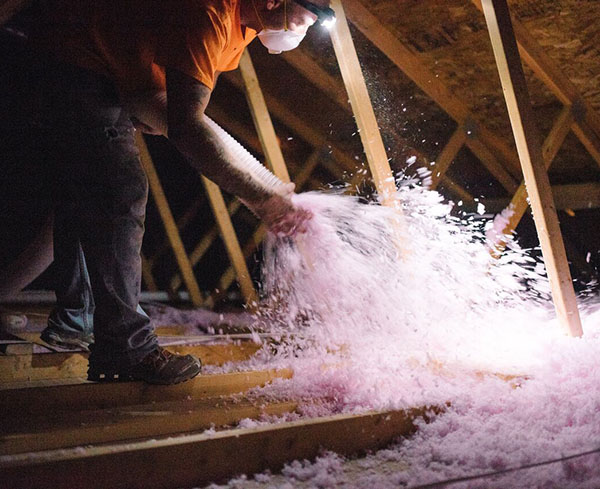Home Energy Audits
-
 Homewise
Homewise
Your home is a big investment. A home energy audit can help you maintain that investment. Keeping it operating efficiently makes it comfortable for you and your family and keeps energy costs low. Leaky windows, lack of insulation and old appliances can work against you. Evaluate your home’s energy consumption.
Insulation, Windows and Doors
Air leaks can reduce home energy efficiency by up to 30% per year. Check these common places in your home for cracks and leaks:
- Doors
- Windows
- Around chimneys
- Where pipes or wires exit the roof or walls
- Make note of drafty areas inside your home
One of the quickest and least expensive ‘fixes’ that can have an impact on your energy bills is caulking, sealing and weather stripping all seams, cracks and openings to the outside.
Checking for insulation in your walls isn’t easy, but you can do it. Turn off the circuit breaker to an exterior wall, remove the cover plate from an outlet and inspect the sides with a screwdriver to determine if there is insulation in your wall. However, this may indicate that insulation has settled and is not completely filling the wall cavity. Insulating your walls, ceilings and floors will provide the most energy savings.
Heating and Cooling
The biggest home energy loads come from your home’s heating and cooling equipment. To reduce wasted energy and money, consider the following:
- Dirty furnace filter should be replaced every other month
- Dust thermostats, heating coils, fins and fan blades
- Seal and insulate ducts
- Close the fireplace damper when the fire is completely out
Maintaining your heating and cooling systems provides savings, maximizes efficiency and increases the comfort level of your home. If your furnace is 15 years old, you should consider replacing it with a newer, energy efficient model.
Appliances
Your home appliances can be energy “hogs”. Consider replacing older appliances with new energy-efficient ones and save money.
- The refrigerator uses more energy than your other appliances. Make sure coils are clean and are not up against a wall or heat source.
- TV’s, DVD players and small appliances can pull electricity even when they are not on. Plug them into a power strip that you can turn off when they are not in use.
- Replace traditional light bulbs with compact fluorescent lamps
- Use the “air dry” function on your dishwasher and save up to 40%
- Wash clothes in cold or warm water to reduce your energy use by 75%
Water Heater and Water Fixtures
Energy and water conservation go hand in hand. Simple changes in water use can save money too.
- Insulate the first six feet of hot and cold water pipes connected to the water heater
- Use faucet aerators and low-flow shower heads to reduce hot water use
- Repair or replace leaky fixtures or toilets
Some water leaks are obvious, but some are invisible. If you suspect a water leak or have had an unusually high water bill, call the city or county water department and ask them to check your water meter.
Professional Energy Audits
A professional energy audit is a detailed look at your home’s energy efficiency and energy usage. It should include an evaluation of the outside of your home, a room-by-room interior inspection, and an examination of past utility bills.
A blower door test is used during the audit. A powerful fan will be attached to an exterior door and will determine the building’s tightness. Some energy audits will also include a thermographic scan, which measures surface temperatures by using infrared cameras.
To prepare for your energy audit:
- Make a list of existing problems such as condensation or drafty rooms
- Have copies of your previous years’ energy bills; contact utility company for copies
- Walk with the auditors as they inspect your home and ask questions

About the Author:
Homewise
Homewise can help
Need to finance energy-efficient and water-conservation home improvements, routine maintenance and emergency repairs.
